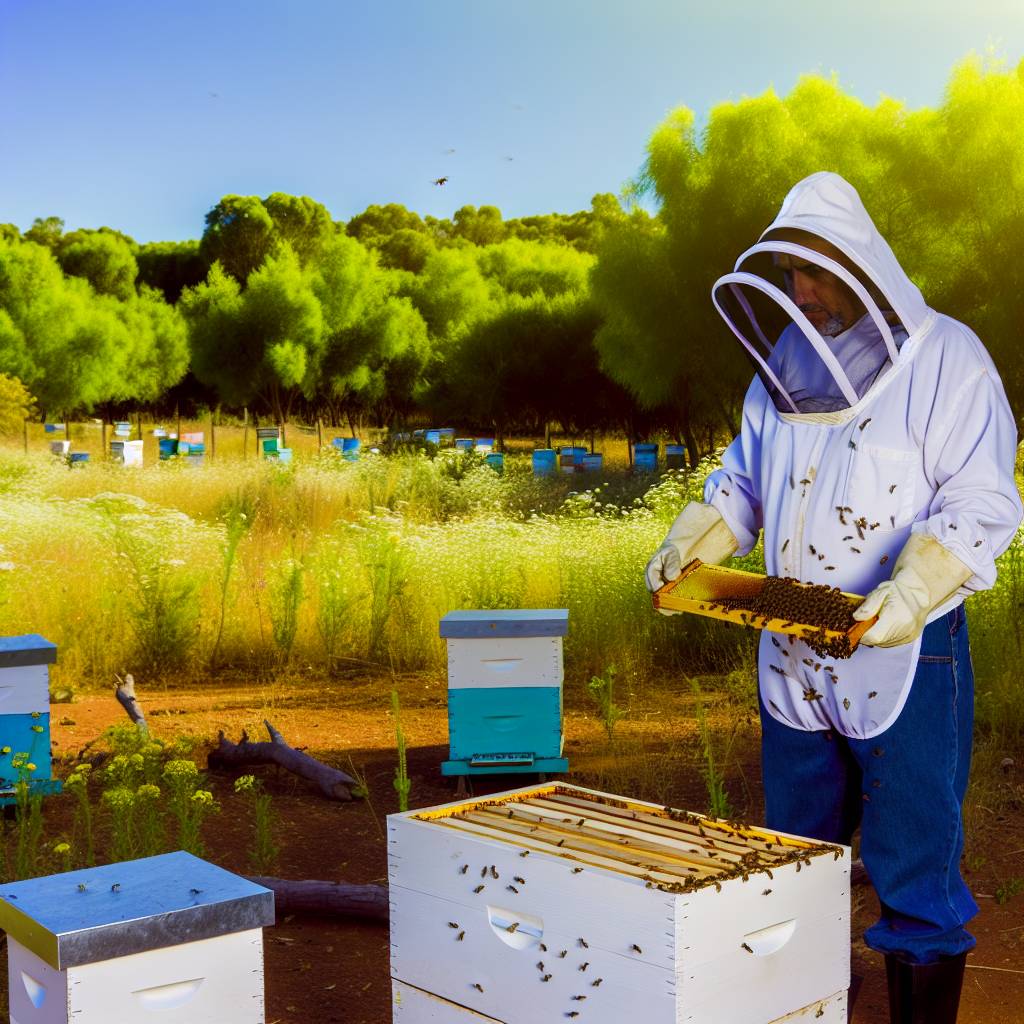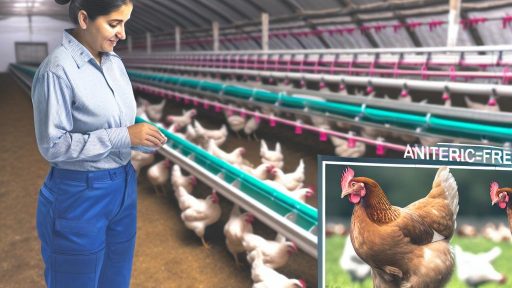Overview of Beekeeping Regulations in Different Countries
Regulatory Landscape in the United States
Beekeeping regulations vary by state in the U.S.
Many states require beekeepers to register their apiaries.
Additionally, beekeepers must follow local health and safety standards.
Some states have specific laws regarding disease prevention.
Compliance with these regulations promotes healthier bee populations.
European Union Guidelines
The European Union has established comprehensive beekeeping regulations.
These regulations aim to protect bee health and biodiversity.
Beekeepers must comply with strict guidelines on the use of pesticides.
Moreover, traceability of honey products is crucial within the EU.
These practices enhance consumer safety and confidence.
Regulations in Australia
Australia has unique beekeeping laws that focus on biosecurity.
Each state regulates beekeeping to prevent disease spread.
Beekeepers must obtain permits for moving hives across state lines.
These measures help protect both native and commercial bee populations.
Beekeeping Standards in Canada
Canada’s regulations promote sustainable beekeeping practices.
Transform Your Agribusiness
Unlock your farm's potential with expert advice tailored to your needs. Get actionable steps that drive real results.
Get StartedProvinces issue licensing and registration requirements for beekeepers.
Health inspections are mandated to ensure colony well-being.
Furthermore, beekeepers are encouraged to follow best management practices.
Global Trends in Beekeeping Regulations
Globally, beekeeping regulations are evolving to meet environmental challenges.
Countries are increasingly concerned about the impact of pesticides.
International organizations are promoting harmonized regulatory frameworks.
Collaboration among beekeepers worldwide improves bee health standards.
Addressing Compliance Challenges
Compliance can be difficult, especially for small-scale beekeepers.
Cost barriers make it challenging for some to meet regulations.
Education and resources are vital for successful compliance.
Support from government programs can make a significant difference.
Licensing Requirements for Commercial Beekeepers
Understanding Licensing Needs
Commercial beekeepers must secure appropriate licenses to operate legally.
Licensing demonstrates compliance with local regulations and industry standards.
This process helps maintain honeybee health and environmental protection.
Types of Licenses Needed
Different types of licenses may be required for commercial beekeeping.
First, a business license typically covers operational aspects.
Next, a specific beekeeping license may be necessary in some areas.
Additionally, farmers might need a permit for transporting bees across state lines.
Application Process
The application process varies by location and regulatory body.
First, familiarize yourself with local government requirements.
Then, gather all necessary documents, such as identification and proof of training.
Furthermore, submit your application along with any required fees.
Fees and Renewals
Fees for licensing can vary significantly by region.
Beekeepers should budget for initial fees and annual renewals.
Showcase Your Farming Business
Publish your professional farming services profile on our blog for a one-time fee of $200 and reach a dedicated audience of farmers and agribusiness owners.
Publish Your ProfileSome states impose additional fees for special permits or inspections.
Always keep track of renewal dates to avoid penalties.
Compliance and Inspections
After obtaining a license, compliance with regulations is crucial.
Authorities may conduct inspections to ensure adherence to safety standards.
Beekeepers must maintain records and documentation in case of audits.
Failure to comply could lead to fines or revocation of licenses.
Seeking Assistance
New beekeepers often benefit from guidance during the licensing process.
State agricultural departments provide resources and assistance.
Professional associations and local beekeeping clubs also offer support.
Moreover, online forums can connect beekeepers for shared advice.
Zoning Laws Affecting Apiary Locations
Understanding Zoning Regulations
Zoning regulations govern where beekeeping activities can take place.
They help maintain public safety and community welfare.
Different municipalities enforce various zoning laws regarding apiaries.
It is crucial to familiarize yourself with local legislation.
Types of Zoning Districts
Local governments typically designate zoning districts for specific purposes.
Commercial apiaries are often allowed in agricultural zones.
However, residential areas may have stricter regulations.
Additionally, some areas may completely prohibit beekeeping.
Each type of zoning district has unique requirements for apiary operations.
Permitting Process for Apiaries
Before establishing an apiary, you typically need a permit.
Permits often require a demonstration of compliance with local laws.
In some cases, zoning boards may hold public hearings.
These hearings allow community members to express concerns.
The permitting process can vary significantly from one location to another.
Consulting Local Authorities
Always consult local authorities before starting an apiary.
They can provide specific details about applicable laws.
Consider contacting the local zoning office or agricultural extension service.
They may offer resources or workshops for prospective beekeepers.
Moreover, staying informed helps prevent legal issues down the road.
Adapting to Changes in Zoning Laws
Zoning laws can change based on community needs and preferences.
Beekeepers should stay informed about any updates in local regulations.
Joining local beekeeping associations can aid in this effort.
These groups often share important information and resources.
Engagement with the community can foster better understanding and support.
Uncover the Details: Livestock Nutrition for Improving Feed Conversion Efficiency
Health and Safety Regulations for Bee Management
Introduction to Health and Safety
Health and safety are crucial in commercial beekeeping.
These regulations help protect both bees and beekeepers.
Understanding these rules ensures successful apiary operations.
Know Your Local Regulations
Each region has specific rules regarding beekeeping.
Start by researching local and state regulations.
Showcase Your Farming Business
Publish your professional farming services profile on our blog for a one-time fee of $200 and reach a dedicated audience of farmers and agribusiness owners.
Publish Your ProfileContact your local agricultural office for detailed guidelines.
Furthermore, attend beekeeping associations for updates.
Apiary Location and Setup
Choose your apiary site wisely.
Your site should be away from high-traffic areas.
Ensure it has access to adequate forage and water.
Additionally, maintain a safe distance from residential properties.
Bee Health Management
Regular health inspections of your bee colonies are essential.
Monitor bees for signs of disease or pests frequently.
Implement effective control measures promptly.
Moreover, maintain good hygiene practices to minimize disease spread.
Equipment and Protective Gear
Invest in high-quality beekeeping equipment.
This includes protective clothing and bee handling tools.
Always wear protective gear during hive inspections.
Also, keep equipment clean and in good repair.
Record Keeping and Reporting
Maintain accurate records of bee health and treatments.
Document interactions, hive inspections, and medication uses.
Moreover, submit necessary reports to local authorities as required.
This promotes transparency and enhances bee management practices.
Emergency Procedures
Establish clear emergency procedures for your apiary.
This includes plans for dealing with stings and allergic reactions.
Train all workers in first aid and emergency response.
Additionally, keep an emergency kit readily accessible.
Gain More Insights: Livestock Nutrition for Maximizing Meat and Dairy Production
Environmental Impact Assessments for Commercial Apiaries
Importance of Environmental Impact Assessments
Environmental impact assessments (EIAs) play a crucial role in commercial beekeeping.
They help identify potential impacts on local ecosystems.
Moreover, EIAs ensure compliance with environmental regulations.
In addition, they promote sustainable practices within the industry.
Components of a Thorough EIA
A comprehensive EIA includes various essential components.
First, it assesses the current state of the environment.
This involves surveying local flora and fauna.
Next, it evaluates the projected impacts of beekeeping activities.
This includes studying pesticide use and foraging behavior.
Additionally, the assessment identifies mitigation strategies.
These strategies minimize negative environmental effects.
Conducting an EIA
Conducting an EIA involves several key steps.
Initially, the beekeeper must gather relevant data.
This includes understanding local biodiversity and eco-regions.
Afterward, they must analyze potential impacts.
In this stage, scenarios of harm and benefits are explored.
Once analysis is complete, the beekeeper can create a report.
Showcase Your Farming Business
Publish your professional farming services profile on our blog for a one-time fee of $200 and reach a dedicated audience of farmers and agribusiness owners.
Publish Your ProfileThis report outlines findings and proposed measures.
Engaging Stakeholders
Engaging stakeholders enhances the EIA process.
This includes local communities, environmental groups, and regulators.
Gathering input from these groups fosters transparency.
It also builds trust within the community.
Additionally, collaboration may lead to better conservation solutions.
Monitoring and Reporting
Continuous monitoring is vital after an EIA is complete.
Beekeepers should regularly assess their environmental impacts.
This encourages adaptive management of their practices.
Also, periodic reporting to stakeholders is important.
It demonstrates accountability and commitment to sustainability.
Discover More: Organic Livestock Farming for Meat Production

Pollinator Protection Guidelines and Best Practices
Understanding Pollinator Health
Pollinator health is essential for ecosystem balance.
Healthy pollinators enhance agricultural productivity.
Therefore, understanding their needs is crucial.
Creating a Safe Habitat
Provide diverse flowering plants throughout the growing season.
These plants should offer nectar and pollen sources.
Additionally, avoid using harmful pesticides in these areas.
Instead, opt for integrated pest management strategies.
Implementing Responsible Pest Management
Choose organic or natural alternatives to chemicals.
Always apply pesticides during non-flowering times.
This timing reduces the risk to pollinators significantly.
Furthermore, train staff on responsible application techniques.
Monitoring and Reporting Practices
Regularly inspect colonies for health and productivity.
Document any abnormal signs or occurrences.
Engage with local agricultural extension offices for support.
Furthermore, report findings to relevant agricultural bodies.
Community Engagement and Education
Educate local communities about the importance of pollinators.
Share best practices for habitat creation and pest management.
Also, encourage participation in local pollinator conservation efforts.
Collaborations can lead to increased pollinator-friendly areas.
Adhering to Local Regulations
Familiarize yourself with local beekeeping regulations.
Complying with these laws ensures a safe environment.
Moreover, understanding the legal framework helps safeguard your operation.
Lastly, stay updated on any legislative changes affecting beekeeping.
Learn More: Importance of Water Quality and Hydration in Swine Rearing
Record Keeping and Reporting Requirements for Apiaries
Importance of Accurate Record Keeping
Accurate record keeping is essential for all commercial apiaries.
It helps beekeepers track hive production over time.
Moreover, it aids in identifying trends and making informed decisions.
Types of Records to Maintain
Beekeepers should maintain various types of records.
Showcase Your Farming Business
Publish your professional farming services profile on our blog for a one-time fee of $200 and reach a dedicated audience of farmers and agribusiness owners.
Publish Your ProfileHives must include data on health and performance.
The records should also document honey production amounts.
Additionally, records of treatments administered are crucial.
Finally, noting any significant events is beneficial.
Recommended Record-Keeping Practices
Beekeepers can implement various practices to improve record keeping.
Firstly, use a digital tool or application to streamline the process.
These tools often provide templates and useful features.
Secondly, create a standardized format for consistency.
Regularly review and update records to ensure accuracy.
Reporting Requirements
Many regions have specific reporting requirements for beekeepers.
These regulations help monitor bee health and hive populations.
Beekeepers may need to submit reports to local agricultural departments.
Additionally, some areas require annual inspections and filings.
Compliance with Local Regulations
It's crucial to understand local regulations and compliance requirements.
Beekeepers should consult their local authorities regularly.
Stay informed on any changes in policies affecting apiaries.
Non-compliance may result in fines or loss of permits.
Using Record Keeping to Enhance Apiary Management
Effective record keeping can lead to business growth.
Analyze records to identify areas for improvement and expansion.
Use data to make informed decisions about hive management.
Ultimately, this helps maintain a productive and healthy apiary.
Local and State-Specific Beekeeping Laws and Updates
General Overview of Beekeeping Regulations
Beekeeping regulations vary by locality and state.
These laws aim to promote public safety and environmental health.
Understanding these laws is crucial for commercial apiaries.
Local Beekeeping Laws
Many cities have specific regulations governing beekeeping practices.
For example, urban areas often impose stricter guidelines.
Beekeepers must check their local zoning ordinances.
Local laws may limit hive numbers or require permits.
Furthermore, maintaining proper distances from property lines is essential.
State-Specific Beekeeping Regulations
Each state establishes its own set of beekeeping regulations.
These regulations often cover hive registration and disease management.
Beekeepers must stay informed about their state’s requirements.
States like California and Texas have detailed regulations in place.
Moreover, these laws can change frequently, so regular updates are necessary.
Recent Updates in Beekeeping Laws
Recently, several states have modified their beekeeping laws.
For instance, some have introduced more lenient regulations on hive placement.
Furthermore, new training requirements for beekeepers are emerging.
These updates aim to enhance hive health and productivity.
Following the latest news from local beekeeping associations is wise.
Obtaining Necessary Permits
Many regions require beekeepers to obtain specific permits.
Showcase Your Farming Business
Publish your professional farming services profile on our blog for a one-time fee of $200 and reach a dedicated audience of farmers and agribusiness owners.
Publish Your ProfileIt is crucial to submit the necessary paperwork before starting.
This process often involves inspections and compliance checks.
Local beekeeping clubs can provide guidance on the requirements.
Resources for Staying Compliant
Staying compliant with beekeeping regulations is essential for success.
Many online resources offer valuable information about laws.
Additionally, local agricultural extension offices can help beekeepers.
Networking with other beekeepers may also provide insights.
Additional Resources
Apiary (Honey Bees) | North Dakota Department of Agriculture




